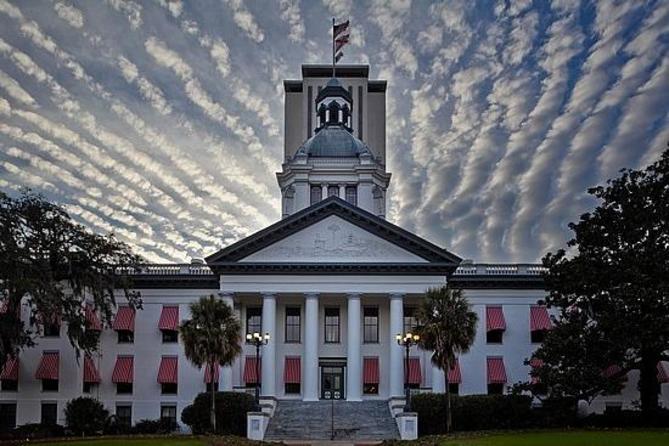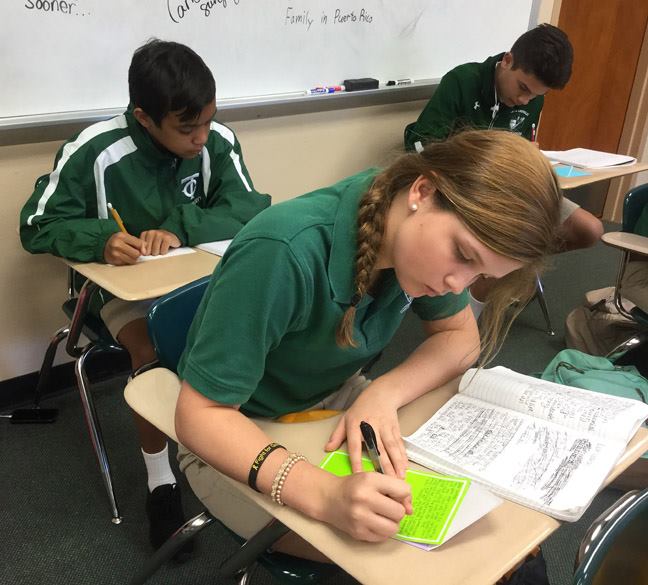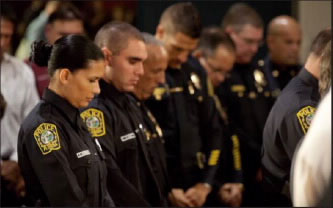
Legislation that would allow all Florida students to take advantage of dual enrollment programs offered by colleges and universities for free won approval today from House and Senate committees.
HB 187, co-sponsored by Rep. Ardian Zika, R-Land O’Lakes, Rep. Susan Valdes, D-Tampa, and Rep. Wyman Duggan, R-Jacksonville, provides $550,000 from the state’s general revenue fund each year to help cover the cost of instructional materials for students at private and charter schools. Last year, the Legislature set aside the same recurring amount to cover those costs for students who are home schooled.
“It’s a first step in the right direction to lower the costs of college,” Zika said during a meeting of the House Education committee, which unanimously approved the bill.
Valdes praised the bipartisanship involved in the development of the bill and said it would help all students succeed regardless of their families’ ZIP codes or income levels.
“To be able to walk out of high school with a degree they would otherwise not have is an amazing opportunity for students,” Valdes said. “This is just a great bill.”
A companion bill in the Senate, SB 1246, sailed through the Senate Education Appropriations Subcommittee with no debate.
“This is an issue I’ve been working on for several years,” said Sen. Kelli Stargel, R-Lakeland. “I believe dual enrollment is a great opportunity for our students.”
Sen. Dennis Baxley, R-Lady Lake, praised the bill for its potential to provide equal opportunity to all Florida families.
“We have taken steps in the past that made sure we were offering dual enrollment to everyone, but we also knew there were some gaps in that,” he said. “We want to make sure everyone has access.
Both bills prohibit colleges and universities from passing along costs to a private school associated with tuition and fees, including laboratory and registration fees as well instructional materials.
The legislation, which would take effect during the 2020-21 school year, also would expand the dual enrollment programs from one to two years to enable more students to earn an associate degree. Currently, the program is open only to high school seniors.
Representatives from several organizations, including the Florida Association of Christian Colleges and Schools, the Florida Council of Independent Schools, the Florida Conference of Catholic Bishops and the Foundation for Florida’s Future, supported the bills.

Tampa Catholic High School is one of many private schools where students take dual enrollment courses.
A new law aimed at giving private high school students greater access to college courses appears to be having the opposite effect, according to private school operators. Instead, potentially hundreds of students may be shut out of dual enrollment courses because their private schools are being asked to pay costs they can’t afford.
Tampa Catholic High School is a prime example. Principal Robert Lees said he was recently told that his long-term agreement with Hillsborough Community College, which allowed his school to offer dual enrollment classes at no cost to students, is now going to come with a $40,000 price tag beginning in 2019.
Said Lees: “Absorbing that cost on our end is not an option.”
The new provisions, contained in a wide-ranging law, HB 7055, that was signed into law in March, were designed to eliminate multiple barriers to private and home school students who want to take dual enrollment courses.
One of those provisions removed the requirement that articulation agreements – the documents that allow students to take certain classes at nearby colleges—must specify whether the private schools are responsible for tuition. But educators were not clear on whether that meant that colleges or the private schools would pay the costs of dual enrollment. (more…)
 Testing investigation: Six conservative legislators are calling on the Florida Department of Education to investigate whether three school districts deliberately limited the number of low-performing 7th-graders taking the state end-of-course civics exam in order to earn better school grades from the state. Sen. Dennis Baxley and Reps. Jason Fischer, Michael Bileca, James Grant, Bob Rommel and Jennifer Sullivan, all Republicans, and the Florida Coalition of School Board Members suggest that the Duval, Manatee and Polk districts limited the number of struggling students taking the test in order to boost the grades of schools and keep charter schools from moving in under the Schools of Hope law. District officials say they are simply having many of the struggling students take the test as 8th-graders, when they might be better prepared, which state law allows them to do. Gradebook. redefinED.
Testing investigation: Six conservative legislators are calling on the Florida Department of Education to investigate whether three school districts deliberately limited the number of low-performing 7th-graders taking the state end-of-course civics exam in order to earn better school grades from the state. Sen. Dennis Baxley and Reps. Jason Fischer, Michael Bileca, James Grant, Bob Rommel and Jennifer Sullivan, all Republicans, and the Florida Coalition of School Board Members suggest that the Duval, Manatee and Polk districts limited the number of struggling students taking the test in order to boost the grades of schools and keep charter schools from moving in under the Schools of Hope law. District officials say they are simply having many of the struggling students take the test as 8th-graders, when they might be better prepared, which state law allows them to do. Gradebook. redefinED.
School security: A school safety agreement is reached between the Sarasota County School Board and Sheriff Tom Knight. The district will pay 80 percent and the sheriff 20 percent of the $1.6 million for 11 deputies to cover 10 schools, plus a lieutenant and two sergeants. Sarasota Herald-Tribune. More than 100 people have applied to become armed guardians to protect Manatee County schools. Most have law enforcement or military backgrounds, officials say. About 40 will be hired. Bradenton Herald. The city of Clermont agrees to provide resource officers for three elementary schools and a K-8 charter school. The Lake County School District will pay the city $279,653 for the officers, and a one-time fee of $211,280 for equipment, including new police cars. Daily Commercial. A coalition of law enforcement groups is looking at ways to make schools safer. The initiative is led by Max Schachter, whose son Alex died in the Marjory Stoneman Douglas High School shooting Feb. 14. Schachter's group, Safe Schools for Alex Foundation, organized the meeting of the eight groups after he discovered there is no nationally recognized list of recommendations to improve school security. Sun-Sentinel. As individual districts work to meet the state mandate for an armed guard in every school, the Florida Department of Education is working to finish setting up its Office of Safe Schools to coordinate the security efforts. Damien Kelly, formerly a public corruption inspector for the Florida Department of Law Enforcement, is its director. WFSU. (more…)
Mark Heller’s hands were tied.
The head of a private college preparatory school in north Tampa wanted to allow many of his students to dual-enroll in a course at a nearby college. But he knew the school could not absorb the costs.
“We couldn’t approve it,” he said. “You start getting 10 or 15 students, and you are talking" tens of thousands of dollars.
A change in the law in 2013 shifted the cost of dual enrollment programs from colleges to school districts. But it did not address private schools, meaning many of them now must absorb the cost of college courses for high school students themselves.
Since then, there has been a 60 percent drop in nonpublic students taking part in dual enrollment classes.
It has made it hard for schools like Heller’s — Academy at the Lakes — to give their students the opportunity to participate in dual enrollment.
Now, there is renewed hope, but still uncertainty. (more…)
Even before a gunman killed 17 people at Marjory Stoneham Douglas High School, Cynthia Aversa had been looking for ways to hire a school resource officer at the charter school she runs on Florida's Treasure Coast.
After the shooting in Parkland, Fla., Aversa promptly decided to contract with the local Sheriff's office to place a full-time deputy at Indian River Charter High School, where she is principal.
But she is still not sure how she is going to pay for it.
“The actual nuts and bolts of the finances of the program have not come to the forefront,” she said. “The most important issue is student safety and beyond. That is going to be our responsibility to see where we are able to pull the funds to pay for this resource officer.”

Miami-Dade Public Schools hold an induction ceremony for school police officers. While some large urban districts have their own police forces, many public schools contract with local law enforcement agencies for resource officers. Funding arrangements vary within and among districts.
Like other public school officials across the state, Aversa acted quickly to respond to concerns about school safety in the wake of the massacre. Like her counterparts in school districts, she's still trying to figure out how to make the funding work.
A little over three weeks after the shooting, Gov. Rick Scott signed SB 7026 to enhance safety and security. Every public school in the state will receive proportionate funding to hire a school resource officer or participate in a program to train and arm school employees.
The bill gave public schools an additional $97.5 million for resource officers. School districts across the state have said that while the money will help them hire officers, it won't cover the full cost of adding an officer at every school campus.
This week, the Tampa Bay Times reported one charter school management company, Charter Schools USA, has asked districts to place a resource officer in every school it runs. (more…)
On the last day of their annual legislative session, Florida lawmakers unanimously passed the most significant legislation to impact homeschool families in years.
House bill 731 would rein in school districts' inquiries to parents who start home education programs. The legislation came in response to concerns among parents that districts were adding hurdles for homeschool registration. That likely contributed to a decline in homeschooling in some districts, even though state statistics show its popularity is growing statewide.
Home education advocates proposed similar legislation multiple times, but it did not pass until this year. The bill now heads to Gov. Rick Scott. (more…)
The Senate Appropriations Committee unanimously passed legislation that would rein in district inquiries to parents who register home education programs.
The bill by Sen. Dennis Baxley, R-Ocala, comes in response to concerns among parents that districts add hurdles for homeschool registration. That has likely contributed to a decline in homeschooling in some districts, even though state statistics show its popularity is growing statewide.
Florida law requires homeschoolers to register with their local school districts. They must send a signed notice of intent to the school district superintendent with the students’ names, birthdates and addresses. The bill would bar districts from requiring other information from parents. It would also clarify that a home education program is not a school district program. (more…)
Nathan Heekin, a seventh-grader at Assumption Catholic School in Jacksonville, recently told members of the Senate Education Committee that he hopes to start taking college classes before he finishes high school.
He has a wide variety of interests in subjects including science, engineering, world history and the military.
But a change in the law in 2013 shifted the cost of dual enrollment programs from colleges to school districts, and inadvertently took that option away.
The change created a dilemma for private schools.
The law says colleges cannot pass tuition and most fees for dual enrollment classes along to students. The guarantee of free access to college-level courses has helped make Florida a dual enrollment leader.
While some colleges still allow private school students to take classes free of charge, many private schools now receive bills of $72 per credit hour for students enrolled in college courses. Unlike public schools, they do not receive state per-pupil funding. This leaves private schools with two options: either find a way to foot the bill, or limit dual enrollment options.
Nathan's mother, Susan Heekin, told lawmakers the 2013 law change "has dampened this opportunity for all children and all private school students.”
In the years since the change, lawmakers have discussed measures intended to ensure dual enrollment access for private and homeschool students. But so far, they haven't passed. (more…)
 House education bill: The Florida House Education Commission approves the 109-page education bill, which includes new scholarships for 3rd-graders who fail the state reading exam, an expansion of school choice, a cutback in computerized state testing and new regulatory accountability rules for private schools accepting tax credit scholarships. Representatives spent considerable time debating the merits of a provision that allows school boards to set up autonomous networks within their districts that would be managed by the highest-rated principals. News Service of Florida. redefinED. Politico Florida. The Senate and House plans for higher education spending differ by hundreds of millions of dollars, but leaders in the chambers say they are optimistic they can strike a deal agreeable to both. News Service of Florida.
House education bill: The Florida House Education Commission approves the 109-page education bill, which includes new scholarships for 3rd-graders who fail the state reading exam, an expansion of school choice, a cutback in computerized state testing and new regulatory accountability rules for private schools accepting tax credit scholarships. Representatives spent considerable time debating the merits of a provision that allows school boards to set up autonomous networks within their districts that would be managed by the highest-rated principals. News Service of Florida. redefinED. Politico Florida. The Senate and House plans for higher education spending differ by hundreds of millions of dollars, but leaders in the chambers say they are optimistic they can strike a deal agreeable to both. News Service of Florida.
Guns and schools: A Senate bill that would allow people to carry concealed weapons in churches and religious institutions that include schools is amended during a hearing Thursday in the Senate Judiciary Committee. Those senators approved the bill only after making a change that would prohibit firearm possession in religious institutions during hours when schools or day-care centers are operating. And two south Florida Republicans are asking the bill's sponsor, Sen. Dennis Baxley, R-Ocala, to provide assurances that he won't continue to push the bill if the amendment is removed. Baxley says he will try to avoid having the bill changed. Orlando Sentinel. News Service of Florida. WFSU.
Public employee unions: The full Florida House passes a bill that would require public employee unions to apply for recertification if their total dues-paying membership falls below half of all those eligible. Unions representing police officers, prison guards and firefighters would be exempt from the bill. Florida Education Association president Joanne McCall says the bill is "an attempt to silence those who dare to speak out and speak up on behalf of our public schools and our students.” The bill's chances in the Senate are uncertain. “The bill hasn’t moved in the Senate this session, and I don’t see it gaining traction,” says Senate president-designate Bill Galvano, R-Bradenton. Politico Florida. (more…)